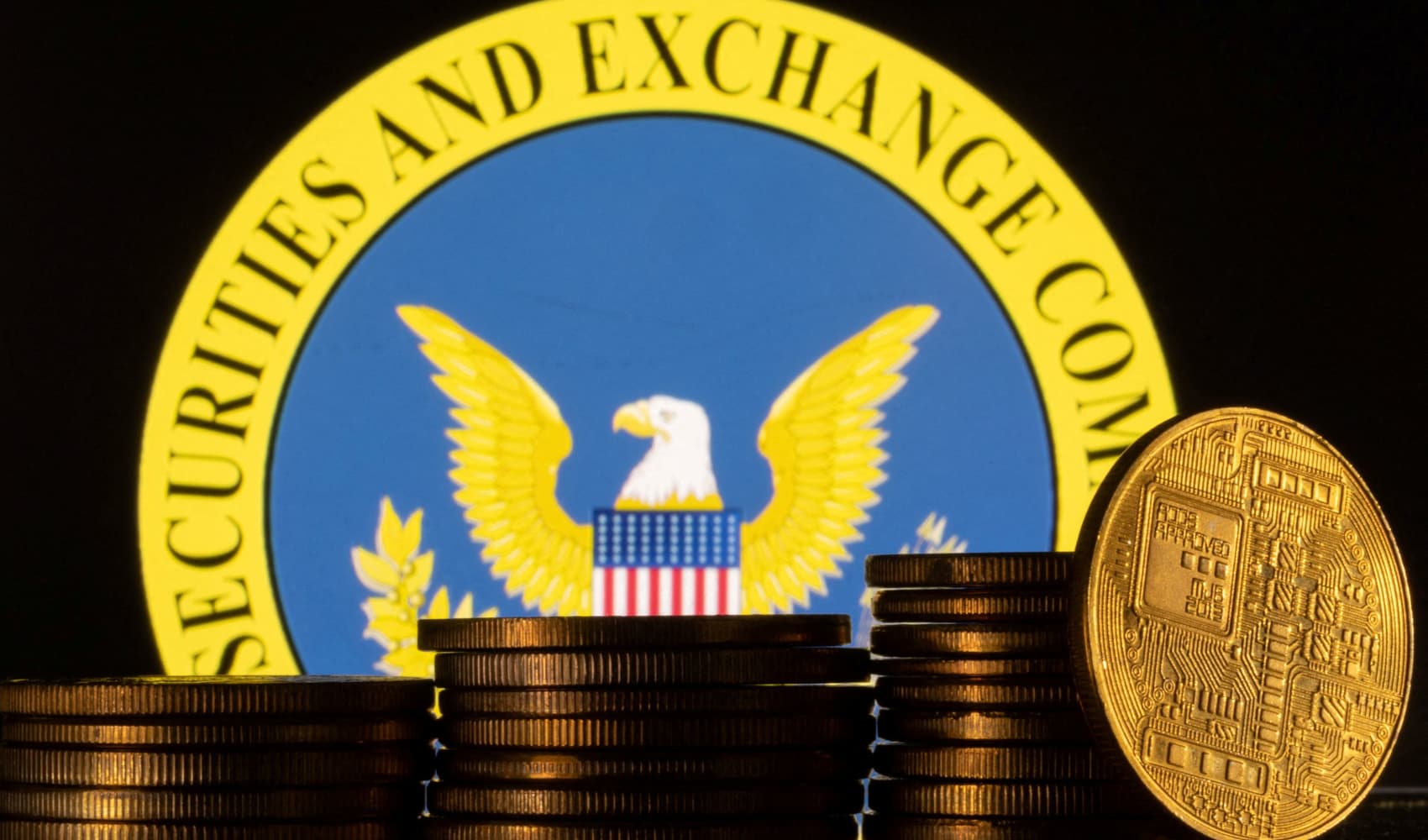Trade Gold & Bitcoin After Stock Rebound: Expert Tips
Riding the Wave: Trading Gold & Bitcoin After the Stock Market Surge
Introduction: Navigating the Post-Rebound Landscape
The stock market's recent rebound has sent ripples throughout the investment world, leaving many wondering what's next for alternative assets like gold and Bitcoin. Are they still worth investing in? Or should you be focusing solely on equities? Well, fear not! This article is your guide to navigating this new landscape. We’ll delve into expert opinions, explore potential strategies, and provide practical insights to help you make informed decisions about trading gold and Bitcoin after the big stock market rebound. Think of it as your treasure map in the post-rebound investment jungle.
Gold's Cooldown: A Temporary Lull or a Long-Term Trend?
After a stellar run that saw a 35% increase, gold's price has indeed cooled off as the stock market regained its footing. But is this a sign that the gold rush is over? Not necessarily. As David Schassler, head of multi-asset solutions at Van Eck, points out, the backdrop for gold remains remarkably favorable. But what exactly does he mean?
The Bullish Case for Gold: Why It Still Shines
Schassler argues that several factors are still in play that could push gold even higher, potentially reaching the $5,000 level. These include:
- Persistent Inflation: Even with interest rate hikes, inflation remains a concern. Gold is often seen as a hedge against inflation, making it an attractive asset during periods of economic uncertainty.
- Geopolitical Risks: Global instability and geopolitical tensions tend to drive investors towards safe-haven assets like gold.
- Currency Debasement: Concerns about the value of fiat currencies can also boost demand for gold as a store of value.
David Einhorn's Golden Endorsement
Adding to the bullish sentiment, hedge fund icon David Einhorn recently expressed his positive outlook on gold. When legendary investors like Einhorn take a position, it's worth paying attention. His endorsement further strengthens the argument that gold still has significant upside potential. Is this a buying opportunity you should consider?
Bitcoin's Continued Rally: Taming the Volatility Beast
While gold has taken a breather, Bitcoin has continued its rally, showcasing its resilience and potential for growth. However, the inherent volatility of Bitcoin remains a major concern for many investors. So, how can you participate in the potential upside of Bitcoin while mitigating the risk?
ETFs: Your Gateway to Less Risky Crypto Investing
Exchange-Traded Funds (ETFs) offer a way to gain exposure to Bitcoin without directly holding the cryptocurrency. These ETFs can track the price of Bitcoin or invest in companies involved in the blockchain ecosystem. This diversification can help reduce the overall risk associated with investing in Bitcoin. Think of ETFs as training wheels for your crypto journey.
Different Flavors of Bitcoin ETFs
There are different types of Bitcoin ETFs available, each with its own risk and reward profile:
- Spot Bitcoin ETFs: These ETFs hold actual Bitcoin.
- Bitcoin Futures ETFs: These ETFs invest in Bitcoin futures contracts.
- Blockchain ETFs: These ETFs invest in companies that are involved in blockchain technology, offering a broader exposure to the crypto ecosystem.
The Stock Market Rebound: A Double-Edged Sword
The stock market's rebound presents both challenges and opportunities for gold and Bitcoin investors. On one hand, the increased risk appetite associated with a rising stock market can draw investors away from safe-haven assets like gold. On the other hand, the rebound can also create opportunities for profit-taking and rebalancing, potentially leading to increased investment in alternative assets.
Understanding the Correlation (or Lack Thereof)
It's crucial to understand the correlation, or lack thereof, between the stock market, gold, and Bitcoin. Historically, gold has often moved inversely to the stock market, acting as a hedge during periods of market turmoil. Bitcoin, however, has shown a more complex relationship, sometimes mimicking the stock market's movements and other times diverging significantly. Think of it as a dance where the partners occasionally switch.
Strategies for Trading Gold After the Rebound
So, how should you approach trading gold in this post-rebound environment?
Dollar-Cost Averaging: A Steady Approach
Dollar-cost averaging involves investing a fixed amount of money in gold at regular intervals, regardless of the price. This strategy can help mitigate the risk of buying at a peak and allows you to accumulate gold over time. Are you looking for a less stressful way to invest?
Buying the Dips: Taking Advantage of Price Volatility
Keep an eye on gold's price fluctuations and consider buying when the price dips. This requires patience and a good understanding of market trends. However, it can potentially lead to higher returns in the long run.
Diversification: Don't Put All Your Eggs in One Basket
Diversifying your portfolio by allocating a portion of your assets to gold can help reduce overall risk and potentially enhance returns. A well-diversified portfolio should include a mix of stocks, bonds, and alternative assets like gold.
Strategies for Trading Bitcoin After the Rebound
What about Bitcoin? How can you navigate its volatility and potentially profit from its continued rally?
Strategic ETF Allocation: Choosing the Right Fund
Carefully consider the different types of Bitcoin ETFs available and choose the ones that align with your risk tolerance and investment goals. A spot Bitcoin ETF might be suitable for long-term investors, while a Bitcoin futures ETF might be more appropriate for short-term traders.
Using Stop-Loss Orders: Protecting Your Capital
Implement stop-loss orders to automatically sell your Bitcoin holdings if the price falls below a certain level. This can help limit your losses and protect your capital in case of a sudden market downturn. Consider it your safety net in the volatile world of crypto.
Rebalancing Your Portfolio: Staying on Track
Regularly rebalance your portfolio to maintain your desired asset allocation. This involves selling some of your Bitcoin holdings if they have appreciated significantly and buying more if they have declined. This ensures that you stay on track with your investment goals and don't become overexposed to any single asset.
Expert Insights: What the Pros Are Saying
Beyond Schassler and Einhorn, many other experts have weighed in on the outlook for gold and Bitcoin. Keep an eye on reputable financial news sources and analysts for the latest insights and recommendations. Remember, knowledge is power when it comes to investing.
The Importance of Due Diligence
Before making any investment decisions, it's crucial to conduct thorough due diligence. This includes researching the underlying assets, understanding the risks involved, and consulting with a qualified financial advisor. Don't rely solely on the opinions of others; do your own homework.
Long-Term vs. Short-Term Strategies
Your investment strategy should align with your time horizon. If you're a long-term investor, you might be more comfortable holding gold and Bitcoin through periods of volatility. If you're a short-term trader, you might focus on taking advantage of price fluctuations.
Tax Implications: Don't Forget the Taxman
Remember to consider the tax implications of trading gold and Bitcoin. Capital gains taxes may apply to any profits you make. Consult with a tax professional to understand the specific rules and regulations in your jurisdiction.
The Role of Regulation: A Changing Landscape
The regulatory landscape surrounding cryptocurrencies is constantly evolving. Stay informed about any new regulations that could impact your Bitcoin investments. Increased regulation could potentially legitimize Bitcoin and attract more institutional investors, but it could also create new challenges for the industry.
Conclusion: Positioning Yourself for Success
Trading gold and Bitcoin after the big stock market rebound requires a strategic approach, a clear understanding of market dynamics, and a healthy dose of risk management. By staying informed, diversifying your portfolio, and implementing appropriate strategies, you can position yourself for potential success in this ever-changing investment landscape. Remember, investing involves risk, and there are no guarantees. But with careful planning and execution, you can increase your chances of achieving your financial goals.
Frequently Asked Questions (FAQs)
1. Is it still a good time to invest in gold after the stock market rebound?
While gold's price has cooled, many experts believe it still has significant upside potential due to factors like inflation, geopolitical risks, and currency debasement. Consider diversifying your portfolio with gold as a hedge against market uncertainty.
2. How can I reduce the risk of investing in Bitcoin?
Investing in Bitcoin ETFs is one way to reduce risk, as they offer diversification and professional management. You can also use strategies like dollar-cost averaging and stop-loss orders to manage volatility.
3. What's the difference between a spot Bitcoin ETF and a Bitcoin futures ETF?
A spot Bitcoin ETF holds actual Bitcoin, while a Bitcoin futures ETF invests in Bitcoin futures contracts. Spot Bitcoin ETFs are generally considered less risky and more suitable for long-term investors.
4. How does the stock market rebound affect the prices of gold and Bitcoin?
The stock market rebound can create a mixed effect. A rising stock market can reduce demand for safe-haven assets like gold, but it can also create opportunities for profit-taking and rebalancing, potentially leading to increased investment in both gold and Bitcoin. Bitcoin's correlation with the stock market is complex and can vary.
5. What are the tax implications of trading gold and Bitcoin?
Profits from trading gold and Bitcoin are typically subject to capital gains taxes. The specific tax rates and rules will vary depending on your jurisdiction. Consult with a tax professional for personalized advice.

